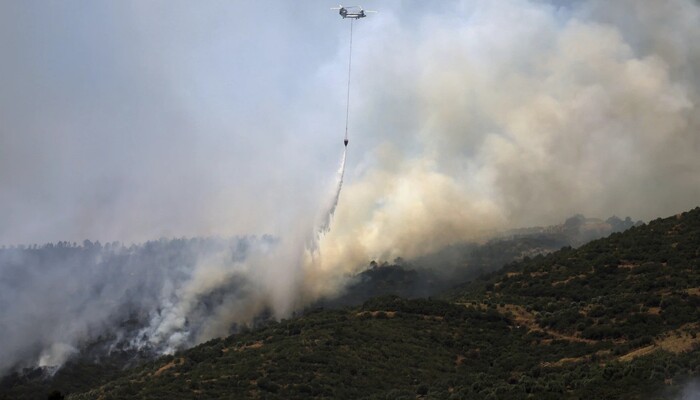Suwayda: After days of deadly air strikes and sectarian violence, Syria and Israel have agreed to a ceasefire, announced by US Ambassador to Turkiye, Tom Barrack, early Saturday. The truce, though yet to be officially acknowledged by either Damascus or Tel Aviv, brings temporary relief to the war-scarred Suwayda region in southern Syria, where clashes between Druze, Bedouins, and Syrian forces had intensified.
In his post on X (formerly Twitter), Barrack said the ceasefire was “supported by Washington” and had been “embraced by Turkiye, Jordan, and Syria’s neighbors.” The truce is seen as a diplomatic effort to prevent further destabilization in Syria, particularly in the southwest, where heavy fighting has displaced thousands and claimed hundreds of lives.
Israel Targets Suwayda, Cites Druze Protection
The latest wave of violence erupted on Wednesday when Israel launched a series of intense air strikes targeting Syria’s Ministry of Defence in central Damascus, as well as military outposts in the Suwayda region. Israel claimed the operation was intended to safeguard the country’s Druze minority in Suwayda, a predominantly Druze province, from ongoing tribal clashes involving Bedouin militias and pro-government forces.
An Israeli official, speaking on condition of anonymity, told reporters that Israel had agreed to “the limited entry of Syria’s internal security forces into the Suwayda district for the next 48 hours” to help stabilize the area. However, he cautioned that “ongoing instability” could prompt renewed Israeli military actions.
Israeli Prime Minister Benjamin Netanyahu referred to the Druze population in both Syria and Israel as “brothers” and implied that Tel Aviv’s actions were rooted in cultural and humanitarian ties. Approximately one million Druze live in Syria, mostly in Suwayda, and around 150,000 are Israeli citizens.
Despite Israel’s stated intentions, the strikes resulted in at least three deaths and 34 injuries, according to Syrian health authorities. Damascus condemned the air strikes as a violation of sovereignty and accused Israel of seeking to exploit ethnic tensions to destabilize Syria internally.
Read more: Why Does Islam Ban So Many Things, Why so many rules?
Sectarian Violence Threatens Ceasefire Efforts
Even as the ceasefire was announced, violence resurfaced in Suwayda on Friday. Fresh clashes between Druze and Bedouin fighters broke out, threatening the fragile peace brokered by the United States, Turkiye, and Arab nations just two days earlier. In response, the Syrian government redeployed security forces to the area in an attempt to restore order.
Syrian interim President Ahmed al-Sharaa addressed the nation on Thursday, reaffirming his commitment to protecting the Druze community. In a televised speech, he stated, “Syria seeks peace, but we are not afraid of war. We will resist any attempt to divide our nation under the guise of humanitarian intervention.”
Al-Sharaa further accused Israel of using the cover of ethnic protection to execute a broader political agenda: “The aggression is designed to tear Syria apart, but we will remain united.” His statement was directed at both domestic audiences and international observers growing increasingly concerned about the regional spillover from Syria’s sectarian conflict.
The current ceasefire follows an earlier agreement mediated between Druze community leaders and the Syrian government. However, Israel’s air strikes that same day undermined local trust and exposed the fragility of externally driven peace initiatives.
A Fragile Truce with Global Stakes
The truce between Syria and Israel remains tenuous. While regional and international actors, including the United States, have played a role in de-escalating tensions, deep-rooted mistrust and continued tribal fighting threaten to unravel the agreement.
With both countries on high alert and regional powers closely watching developments in Suwayda, the ceasefire could either mark a turning point or prove a temporary pause in a broader conflict.
As Syrians in Suwayda hope for lasting peace, the coming days will determine whether diplomacy can triumph over decades of mistrust and violence—or if the region will once again descend into chaos.
Follow us on Instagram, YouTube, Facebook,, X and TikTok for latest updates
